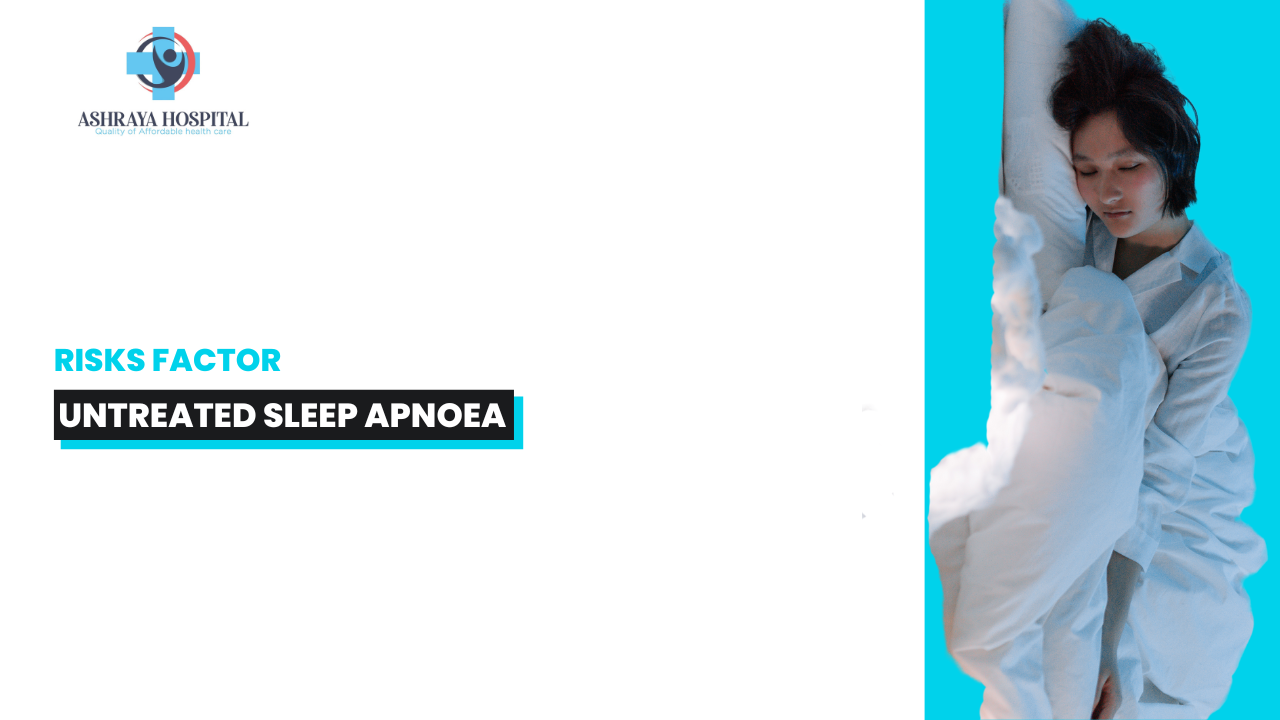



According to a report by the All India Institute of Medical Sciences (AIIMS), 104 million Indians suffer from sleep apnoea, with 11% of the adults suffering from Obstructive Sleep Apnoea (OSA). The study reveals that men are more at risk (13%) compared to women (5%). If left untreated, sleep apnoea poses significant risks to overall health, increasing the probability of liver disease, diabetes, cognitive impairment, and even premature mortality.
This blog discusses the dangers of untreated sleep apnoea, exploring its consequences and emphasising the need for diagnosis, treatment, and lifestyle interventions.
It is a long-term sleep disorder that causes recurrent pauses in breathing during sleep. When you wake up to resume breathing, this disrupts normal sleep patterns and increases stress.
Depending on what is interrupting your breathing during sleep, the condition is classified into three forms:
Sleep apnoea’s impact extends beyond drowsiness and disrupted sleep. Untreated sleep apnoea triggers a cascade of harmful effects. Oxygen levels decline as breathing pauses recur throughout the night, stressing organs and tissues.
After sensing distress, the brain shifts from deep sleep to lighter stages, fragmenting sleep patterns and reducing essential rapid eye movement (REM) sleep. Sleep apnoea’s repeated interruptions also prevent the body from repairing and rejuvenating itself, compromising immune function and overall well-being.
Sleep deprivation, resulting from untreated sleep apnoea, profoundly impacts daily life, affecting cognitive function, emotional well-being, and physical health.
Short-term sleep apnoea risks include:
Long-term side effects of sleep apnoea are more severe than short-term risks, which include:
In addition to medical treatment, incorporating healthy lifestyle changes can help relieve sleep apnoea symptoms:
Sleep apnoea is a disabling condition that, if left untreated, puts people at considerable risk for other health and medical issues. Untreated sleep apnoea significantly increases the chances of developing cardiovascular diseases, diabetes, hypertension, etc. Nonetheless, early diagnosis and treatment considerably decrease other health complications. Through the recognition of symptoms, medical attention, and lifestyle modifications, it is possible to handle sleep apnoea effectively.
Is sleep apnoea waking you up at night often? Stop by Ashraya Hospital, Pune offers comprehensive care for sleep apnoea patients, including personalised treatment plans and ongoing support and monitoring for optimal sleep health. Schedule an appointment today to breathe and sleep peacefully.